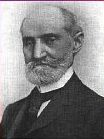Fever
Characteristic – Especially suitable to diseases of women, spasmodic and hysterical complaints complicated with uterine diseases, who have suffered for years from attacks of indigestion or biliousness.
Children: during difficult dentition are unable to digest milk, it causes pain in stomach and passes undigested, crave sweets.
Sensation of soreness, with great sensitiveness to noise (Ignatia, Nux vomica, Theridion).
Headache: every six weeks, in forehead and around the eyes, as if it would burst, aggravated from motion and in open air, ameliorated lying down. strong pressure, wrapping up warmly (Silicea, Stron.).
Tendency of head to sweat (Calcarea, Sanicula, Silicea).
Continual rising of white froth into the mouth.
Toothache, unbearable when food touches the teeth
Eructations, tasting like onions (breath smells of onions, Sinap.).
Constipation: stool large, hard, knotty, like sheep dung, difficult to pass, crumbling at verge of anus (Am.m., Nat.m.), of infants during dentition.
Urine: pale yellow, can only be passed by bearing down with abdominal muscles, weakness of bladder.
Menses: with great excitement at every period, flow black, clotted, spasms and pain extend into thighs, metrorrhagia, aggravated night in bed, causing hysteria (Actea, Caulophyllum, Xan.).
Leucorrhea: after exercise, with every stool, with uterine spasm, followed by metrorrhagia, two weeks after menses (Baryta, Bovista).
Great tendency to foot – sweat (Silicea, Sanicula).
Aggravation: At night, when riding on horseback, sea bathing (great weakness), cold.
Amelioration: Warmth, in bed, exercise.
Type: Quotidian. Same time every day. Headache every six weeks.
Time: 4, 6, 7, 8 p.m. – 4 to 8 p.m. worse ( Hepar, Lycopodium, Sabina – pains commencing at 4 or 5 p.m., worse until midnight, diminishing after, and ceasing at daylight, Syphilinum ).
Chill: With shaking, not relieved by warmth of stove, lessened in the open air and in bed. Shivering over the whole body, with icy cold feet. Chilliness, with goose flesh, frequent yawning, cutting in abdomen and constant desire for stool. Chilliness in the evening, that disappears after lying down, followed before midnight by heat, and after midnight, sweat, with thirst lasting till morning.
Heat: With thirst, in the evening, averse to uncovering. Flushes of heat, with vertigo. Heat of head, with redness of face, without external warmth, with internal shivering and desire for stool.
Sweat: Without thirst, after midnight, till morning, averse to uncovering. Early morning with thirst and dryness of the mouth.
Tongue: Coated white in morning, or tip and edges clean. Taste sour at night. Desire for sweets.

